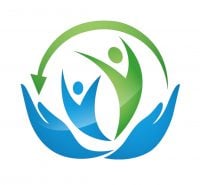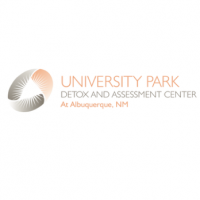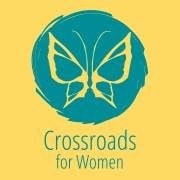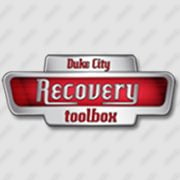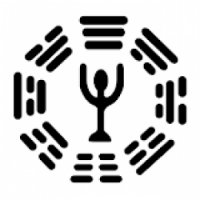New Mexico Corrections Department - Men's Recovery Academy
Drug Rehab Center in Los Lunas, New Mexico
The New Mexico Corrections Department - Men's Recovery Academy in Los Lunas, NM, offers comprehensive services and treatment methods to help individuals overcome addiction and achieve sobriety, including inpatient treatment, sober-living, halfway houses, and aftercare support.
About New Mexico Corrections Department - Men's Recovery Academy in New Mexico
New Mexico Corrections Department - Men's Recovery Academy located in Los Lunas, NM, is a facility dedicated to helping individuals overcome addiction and achieve sobriety. With a focus on treating alcoholism, dual diagnosis, opioid addiction, and drug addiction, this facility provides comprehensive services to those seeking recovery. With affiliations to the New Mexico Corrections Department, the Men's Recovery Academy offers various levels of care, including aftercare support, drug rehab, inpatient treatment, and sober-living halfway houses.
This facility offers a range of services and treatment methods to address addiction and substance abuse effectively. Individuals at New Mexico Corrections Department - Men's Recovery Academy can benefit from inpatient treatment, providing a structured and supportive environment for recovery. Moreover, the facility provides sober-living and halfway houses, which can help individuals successfully transition back into the community while maintaining their sobriety. Additionally, the Men's Recovery Academy offers aftercare support, ensuring continued assistance and guidance even after leaving the facility. With a focus on treating alcoholism, dual diagnosis, opioid addiction, and drug addiction, this facility employs evidence-based approaches and personalized treatment plans to assist individuals on their path to recovery.
Genders
Ages
Modality
Additional
Conditions and Issues Treated
Treatment for opioid addiction is best made with the help of medical professionals who are experienced in dealing with these types of drugs. This treatment can involve medications, exercise, behavioral therapy, and counseling sessions. It is important to note that the effectiveness of treatments for opioid addiction vary, so it is vital to research which treatment options are suitable for each individual.
Many people who struggle with opioid addiction need to attend specific programs like methadone , Suboxone or Vivitrol clinics.
These types of programs will provide the patient with legal, prescription medications that can help them overcome their cravings for illegal opioids like heroin or fentanyl . If the patient has a chronic condition like Hepatitis C, they must undergo treatment before they can begin taking these medications.
Levels of Care Offered
This center offers a variety of custom treatment tailored to individual recovery. Currently available are Aftercare Support, Drug Rehab, Inpatient, Residential, Sober-Living / Half-Way, with additional therapies available as listed below.
Inpatient recovery offers individual therapy, groups, and family therapy. The length of inpatient addiction treatment depends on the addict and their addiction. Inpatient rehab is a costly drug treatment, costing anywhere from $30k- to $60k. However, insurance often offers help in covering these costs.
Sober living homes are transitional houses for recovering addicts who need more structure than they would receive in an aftercare program. Specific rules and regulations are enforced in these homes, which are beneficial for people who need a greater degree of structure than other types of treatment.
Sober living home options include:
- Live-in managers – might be beneficial to people who do not have a support system in place at home, or who experience high levels of stress between work and home life.
- House managers – House managers are beneficial for people who do not have a strong social network to rely on, or who are concerned about relapse in their daily lives.
- House parents – House parents are beneficial to people who reside in areas without a strong aftercare program for support.
Residential treatment programs are those that offer housing and meals in addition to substance abuse treatment. Rehab facilities that offer residential treatment allow patients to focus solely on recovery, in an environment totally separate from their lives. Some rehab centers specialize in short-term residential treatment (a few days to a week or two), while others solely provide treatment on a long-term basis (several weeks to months). Some offer both, and tailor treatment to the patient’s individual requirements.
Aftercare support is vital to those who have completed a drug or alcohol treatment program. This support comes in individual and family counseling, treatment of psychiatric and other medical conditions, and medications to reduce cravings. It helps recovering addicts adjust to normal day-to-day activities and can last for a year or longer.
The majority of drug and alcohol addicts who receive aftercare treatment do not relapse. It is estimated that without aftercare, the relapse rate will be between 70 to 90 percent for most people. Aftercare is the final stage in addiction recovery, but it will also help maintain sobriety if relapse does occur.
Therapies & Programs
Individual therapy is ideal for addicts who want to focus on themselves. It can also be helpful for those whose withdrawal symptoms are exacerbated by the presence of other people.
Benefits of individual therapy are:
- Access to a personalized treatment plan that focuses on the individual needs of the addict
- More privacy during treatment sessions
- Better personal development through introspection
- Increased self-awareness regarding addictive tendencies in order to avoid relapse
- Greater potential for a long-term recovery plan
- Receiving professional advice and detox assistance from medical staff
Family therapy can help you and your family deal with old issues that may trigger substance abuse. The idea behind family therapy for drug addiction is that you are never fully healed from substance abuse until you’ve healed your relationship with your family, too. To get sober, you need to find a different way to cope with the pain in your life.
This is when a group of people in various stages of recovery meet up and discuss their experiences, triggers, successes, failures, and even alternative therapies! Unlike support groups where everyone already knows each other, group therapy is conducted along side outpatient or inpatient treatment at New Mexico Corrections Department - Men's Recovery Academy.
Trauma therapy is a clinical process that helps individuals deal with mental stress often caused by traumatic events. The therapist helps the person identify, understand and work through the problem. This is done with the help of talking about it in group or one-on-one counseling sessions.
Therapists use relaxation, role-playing, art, and music to help the person open up about what is bothering them. Some examples include:
- Talking about the traumatic event and how it affected them.
- Helping those who have PTSD to deal with their nightmares and recurring memories.
- Working with individuals to resolve the issues triggering the stress, whether seeing someone who reminds them of what happened or feeling helpless.
The individual is also encouraged to help others that are struggling with similar problems. This often helps them feel empowered and gives them hope.
Trauma therapy is not for everyone; it is usually reserved for people who have recently experienced a traumatic event and struggle to get over it. It is generally done for children, teenage victims of sexual assault, and war veterans.
Dialectical Behavior Therapy (DBT) is used by drug treatment centers across the United States to help drug addicts become sober. DBT is a type of Cognitive Behavioral Therapy (CBT) that combines traditional behavioral treatments with elements from DBT, including dialectics, distress tolerance, and interlocking issues. Some of the negative behaviors associated with addiction, such as impulsivity and mood swings, are addressed in DBT, while others like craving and isolation are not. It is commonly used to treat Borderline Personality Disorder (BPD) along with substance abuse disorders.
The four DBT modules are mindfulness, interpersonal effectiveness, emotion regulation, and distress tolerance:
- Mindfulness helps recovering addicts learn to identify and experience their emotions while realizing that they are not permanent.
- Interpersonal Effectiveness includes assertiveness, asking for what you need, and saying no while improving communication skills.
- Distress Tolerance has recovering addicts learn how to tolerate distress at the moment and avoid resorting to substance abuse.
- Emotion Regulation is used to identify, express and change emotions.
CBT is a psychotherapy approach and method. [ws-nap-name] people to examine how their thoughts, including habitual harmful and inaccurate thinking, affect their actions. CBT is based on the idea that rigid, inflexible thinking leads to poor stress management, which leads to emotional distress.
Similarly, CBT helps people identify and change negative behaviors. It makes you question your perceptions and ask if they are realistic. CBT asks people to examine their behaviors and emotional responses and how they affect their lives. CBT aims to change people’s thinking and behavior to lead a more balanced and healthy life.
Moreover, CBT has been shown to reduce anxiety disorders, depression, and symptoms associated with harmful thoughts or actions.
The results of Rational Emotional Behavior Therapy treatment are clear. It seeks to help you in the short term rather than being lifelong treatment. Rational Emotional Behavior Therapy addresses the root issue of an individual’s emotional distress. It is proven effective with substance use disorders, which can help break a spiral of negative thinking. A drug rehab center that uses REBT is more likely to be successful. It creates lasting changes in a patient’s behavior, and this can improve your quality of life.
Those struggling with addiction can benefit from learning certain life skills. It is not as simple as quitting drinking or taking drugs and thinking that the hard part is over. Being sober means living a whole new way of life. Many recovering addicts have found that they need to develop talents like time management, organization, communication skills, socialization skills, and self-esteem to make their life in sobriety work, New Mexico Corrections Department - Men's Recovery Academy is here to help with that.
Nutrition therapy has been used to help drug addicts for decades. Many early reports on addiction treatment indicate that some patients recovered from the “satisfying power of food”. For years, this phenomenon has been utilized as a treatment modality in eating disorders for adults, adolescents, and children. Specific nutrients have been identified that influence neurotransmitters associated with reward pathways of the brain.
Studies have shown that carbohydrate loading with complex carbohydrates to elevate serotonin levels was effective in treating bulimia nervosa. This approach prompted researchers to explore the use of this type of nutritional intervention in other disorders.
Nicotine replacement therapy is a drug treatment that allows people to get the effects of nicotine without chewing or smoking. The therapy is often done with a patch, and doses of nicotine are reduced until nicotine is no longer needed. NRT helps smokers get nicotine into their system without resorting to smoking, and it has been shown to be an effective way to help people quit smoking. Coupling NRT with counseling and other means of support gives long-term smokers a better chance of removing their unhealthy habit.
New Mexico Corrections Department Associated Centers
Discover treatment facilities under the same provider.
Learn More About New Mexico Corrections Department Centers
Additional Details
Specifics, location, and helpful extra information.
Los Lunas, New Mexico 87031 Phone Number(505) 866-0590 Meta DetailsUpdated November 25, 2023
Staff Verified
New Mexico Corrections Department - Men's Recovery Academy Patient Reviews
There are no reviews yet. Be the first one to write one.
Los Lunas, New Mexico Addiction Information
New Mexico has been one of the leading states in the nation when it comes to drug and alcohol use, abuse, and addiction. Opioids are responsible for over 60% of all drug-related overdoses in New Mexico. Alcohol-related deaths in New Mexico are the highest in the nation and almost twice the national average since 2000.
There were 3,664 drug overdose deaths in Los Lunas, New Mexico in 2017 - a rate of 25.7 deaths per 100,000 people. In 2015, there were a total of 26 drug overdoses in Los Lunas, with 19 of those being attributed to heroin. The city is also struggling with dealing with the growing number of addicts. There are many resources available to help you get sober, including support groups, therapy, and 12-step programs.
Treatment in Nearby Cities
- El Prado, NM (129.6 mi.)
- Grants, NM (66.8 mi.)
- Las Vegas, NM (101.4 mi.)
- Cedar Crest, NM (29.1 mi.)
- Santa Rosa, NM (117.2 mi.)
Centers near New Mexico Corrections Department - Men's Recovery Academy
The facility name, logo and brand are the property and registered trademarks of New Mexico Corrections Department - Men's Recovery Academy, and are being used for identification and informational purposes only. Use of these names, logos and brands shall not imply endorsement. RehabNow.org is not affiliated with or sponsored by New Mexico Corrections Department - Men's Recovery Academy.

